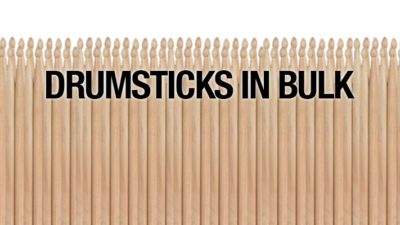Choosing the best drumsticks isn’t just about picking the most expensive pair off the rack. The right stick can completely change your sound, control, and comfort behind the kit.
I’ve snapped sticks mid-song, worn out tips in a single session, and spent way too much money trying to figure out what worked. Eventually, I learned: the best drumstick is the one that fits your style – not just your budget.
Whether you’re playing rock, jazz, metal, funk, or just learning your first single strokes, this guide covers the best options for your genre, skill level, and gear.
From practice sticks to performance workhorses, you’ll find hand-tested picks and clear reasons why they work.
If you’re not sure what tip shape, size, or material to even look for, check out our full Drumsticks 101 guide for a deep dive on how to choose the right pair before you buy.
And if you’re just here for the top recommendations? Let’s get right into it 👇
Quick Picks
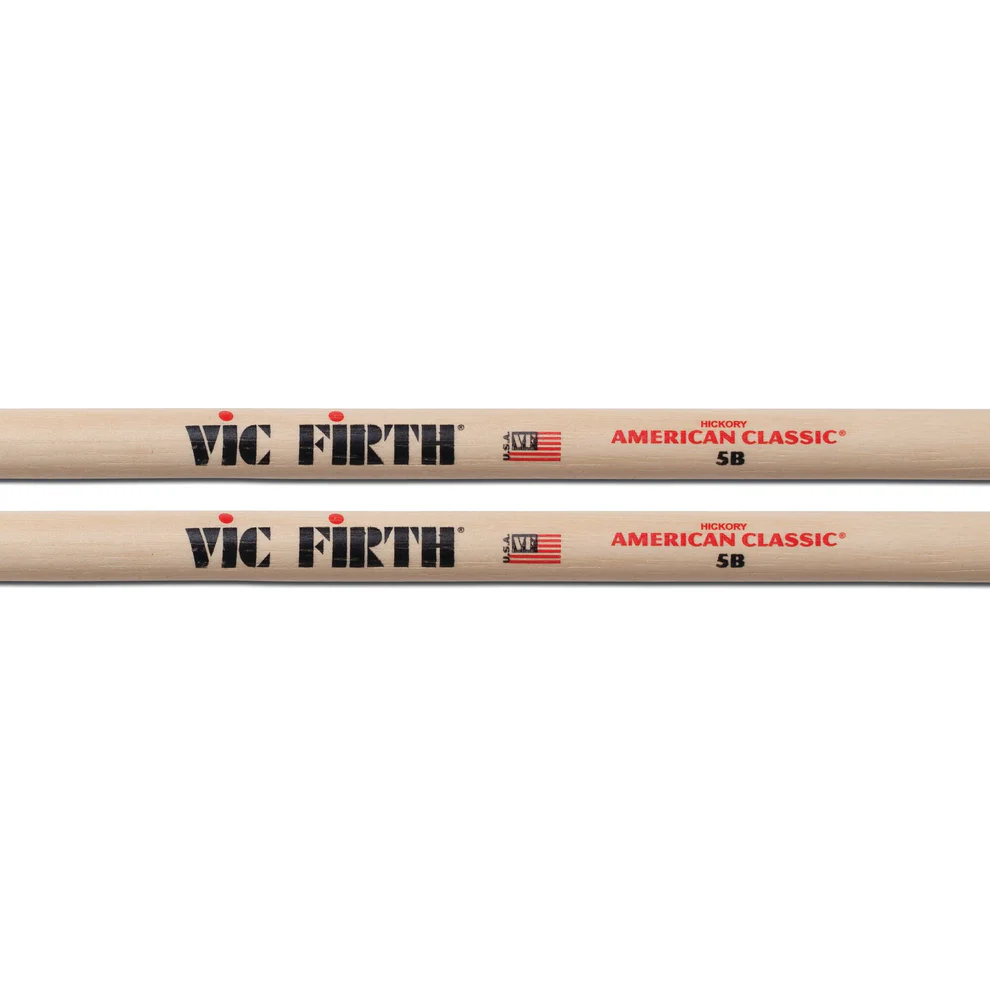
Vic Firth American Classic 5B
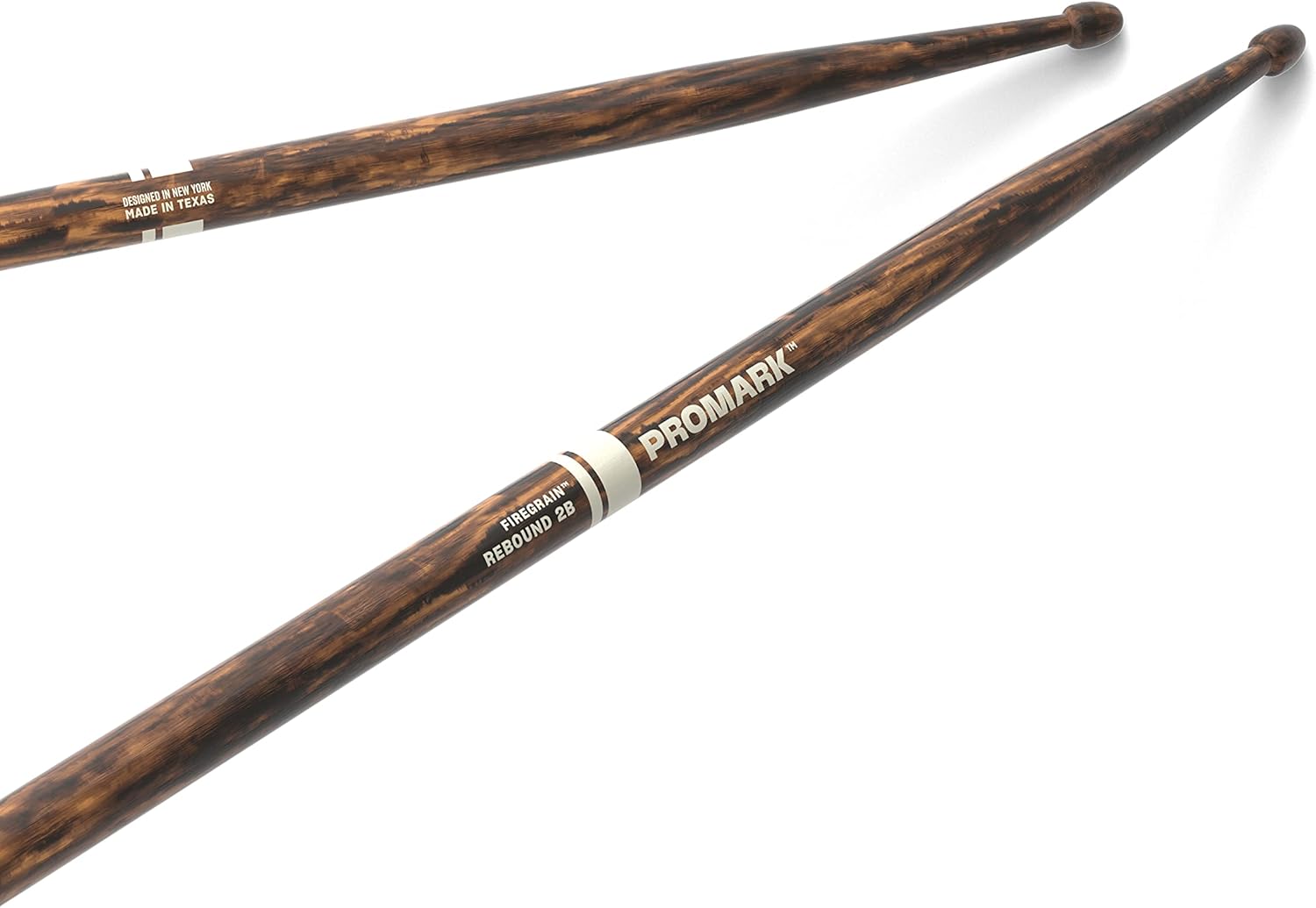
Promark FireGrain Rebound 2B
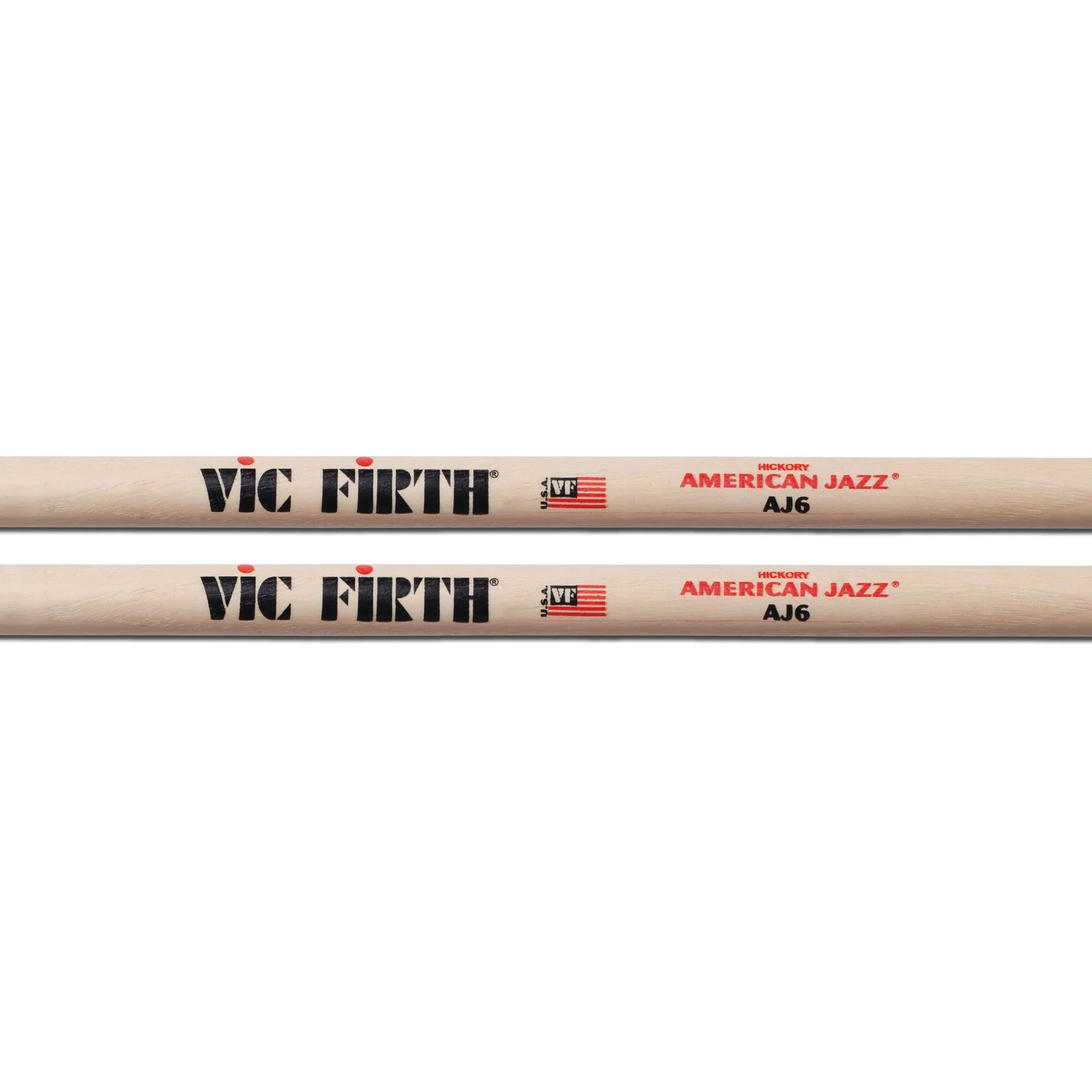
Vic Firth AJ6
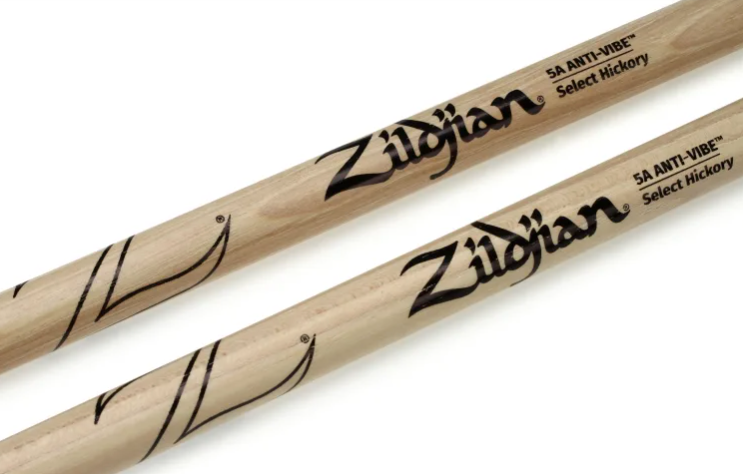
Zildjian Anti-Vibe Nylon 5A
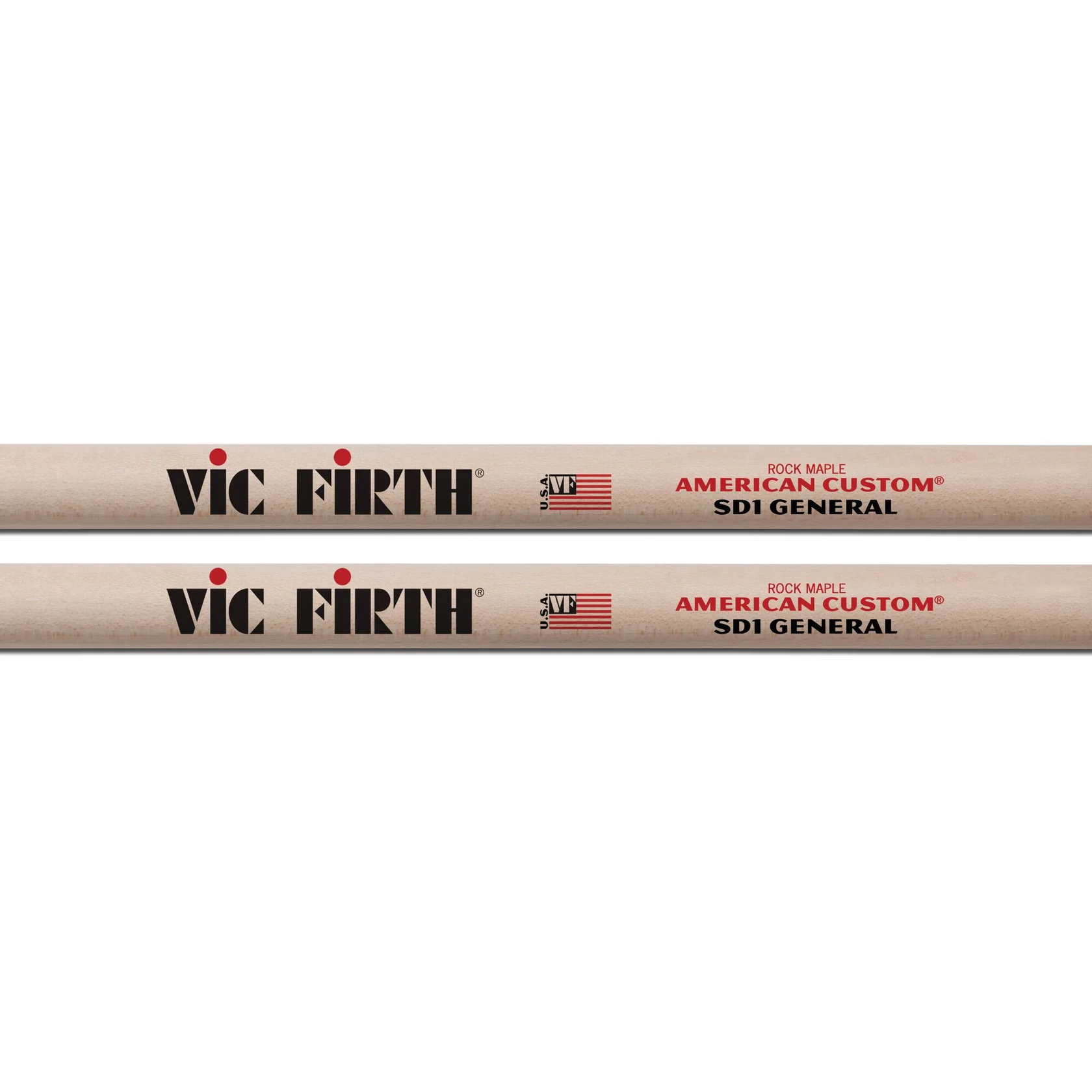
Vic Firth SD1 General
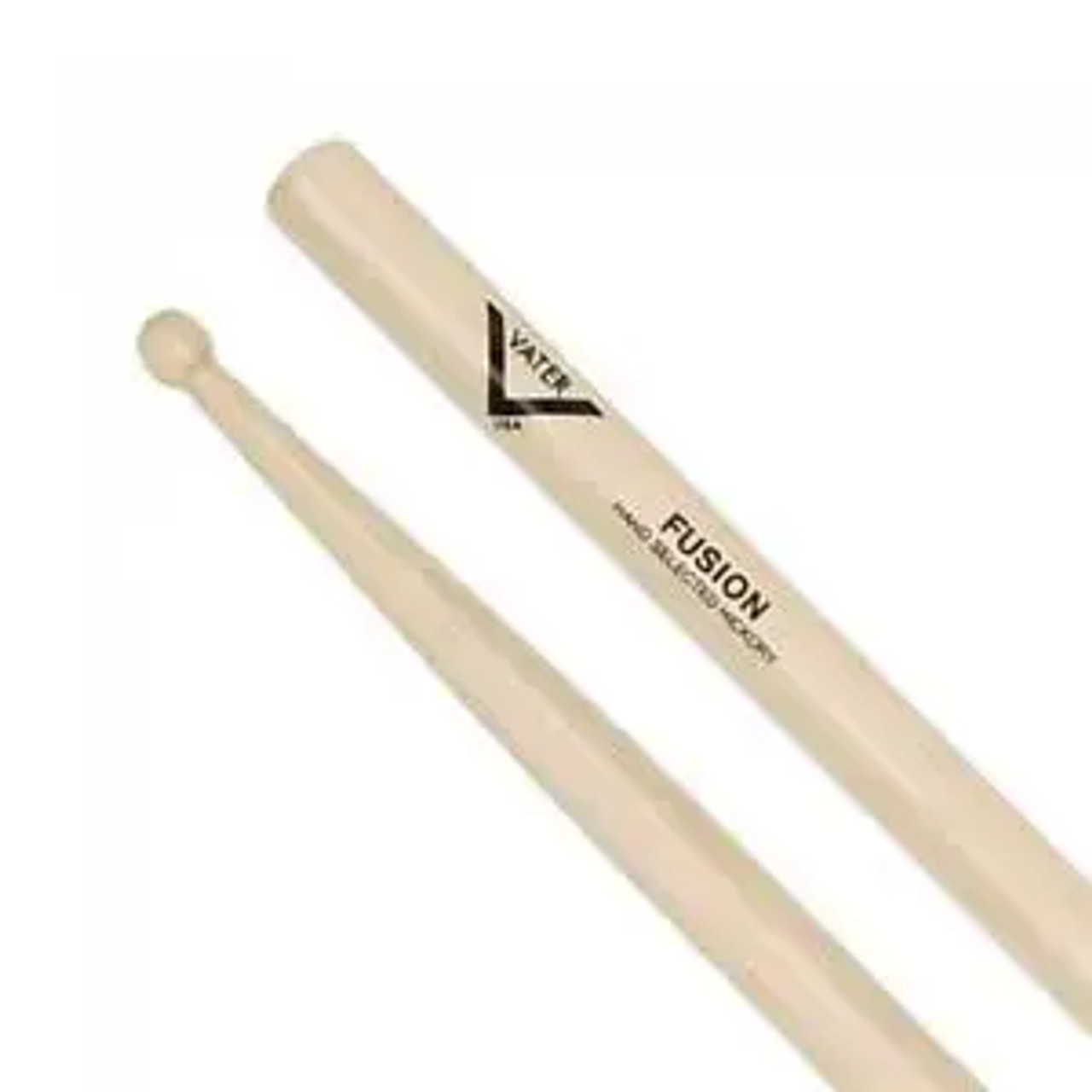
Vater Fusion
Best Drumsticks for Rock
If you play rock, you need sticks that can keep up with your energy and volume. Rock drumming is all about power, feel, and durability. That means heavier sticks, tougher wood, and tips that can handle constant contact with cymbals and rims.
When I first started playing live shows, I was burning through thin sticks like crazy. Switching from 7A to 5B (and eventually trying 2Bs for fun) made a massive difference.
Thicker sticks gave me better rebound, more control at higher volumes, and fewer breaks mid-song.
What to Look For in Rock Sticks:
- Heavier weight – Go with 5A, 5B, or 2B depending on your strength and speed.
- Durable wood – Hickory is the most common and holds up well under stress.
- Teardrop or oval tips – These offer a balanced tone on both drums and cymbals.
- Medium taper – Gives you better control without being too front-heavy.
If you’re new to choosing sticks by feel, check out our drumstick weight guide for a breakdown of how size affects rebound and fatigue.
Top Drumsticks for Rock Drumming

Vic Firth American Classic 5B
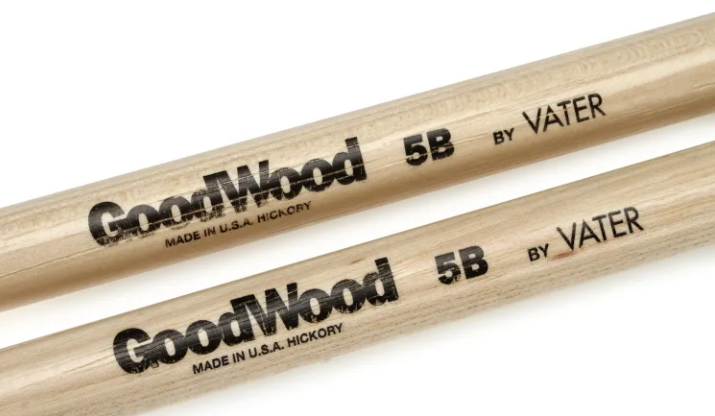
Vater Goodwood 5B
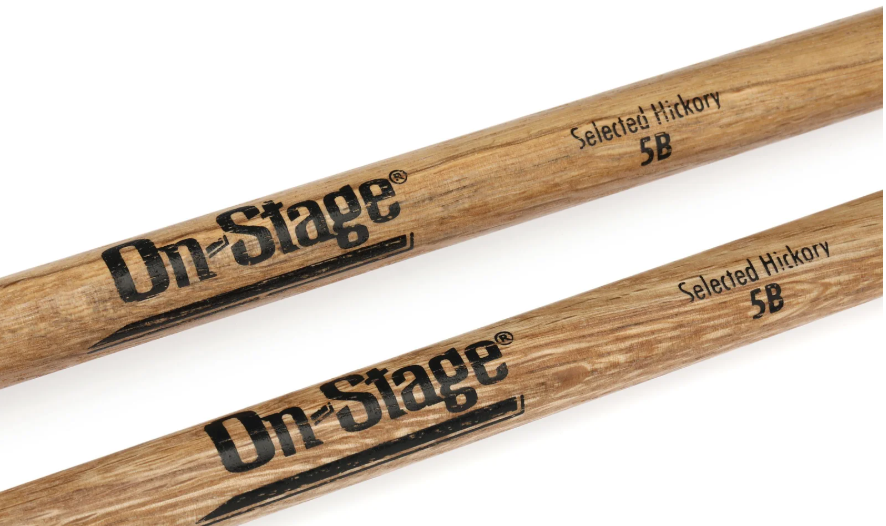
On-Stage 5B
Best Drumsticks for Metal
Metal drumming is a different beast. You’re hitting harder, moving faster, and spending way more time bashing cymbals and riding blast beats. So naturally, your sticks need to be durable, dense, and built for punishment.
Take a look at our in depth article about best drumsticks for metal.
Back when I started diving into heavier genres, I destroyed sticks weekly – until I realized I needed to step up to 2B hickory or oak. These sticks are thicker, longer, and absorb more shock, which not only protects your hands but keeps them from splintering mid-set.
What to Look for in Metal Drumsticks:
- 2B or heavy 5B sizing for strength and durability
- Reinforced hickory or oak for added density
- Shorter tapers for more front-end power
- Synthetic or treated wood options (like FireGrain) for extreme durability
Still breaking sticks too fast? Don’t miss our deep-dive on broken drumsticks and how to make them last longer.
Top Drumsticks for Metal Drumming

Promark FireGrain Rebound 2B
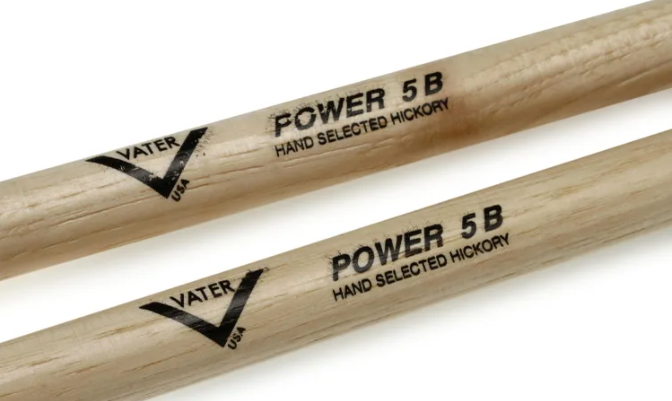
Vater Power 5B
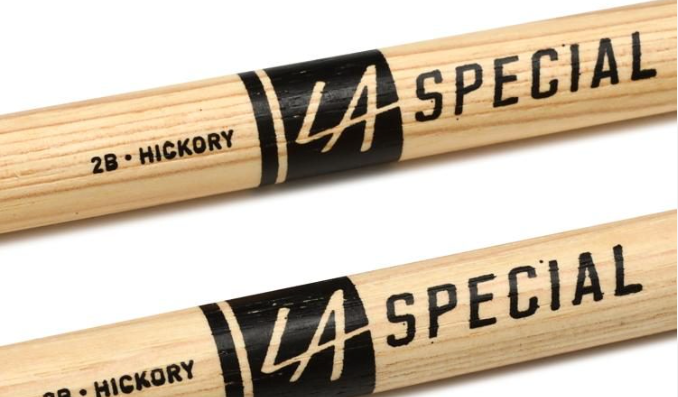
LA Special 2B
Best Drumsticks for Jazz
Jazz drumming is all about finesse, touch, and dynamic control. You’re not bashing cymbals or digging into toms – you’re painting textures with every stroke.
That’s why the best drumsticks for jazz are typically lighter, longer, and more responsive, often with small round tips for articulate cymbal tones.
Back when I tried my first jazz combo session, I brought my 5Bs… and instantly regretted it. Way too heavy, way too loud.
Once I switched to 7A maple sticks with longer tapers, I could actually play the ride without washing it out, and the ghost notes on the snare finally started sounding like they should.
What to Look for in Jazz Drumsticks:
- Lighter wood like maple or thinner hickory
- Long tapers for smooth rebound
- Small round tips for articulate ride cymbal work
- Good balance for brush strokes and light sticking
Want to dig deeper into how stick design affects your cymbal tone? Check out our full drumstick tip shape guide and drumstick sizes chart.
Top Drumsticks for Jazz Drumming
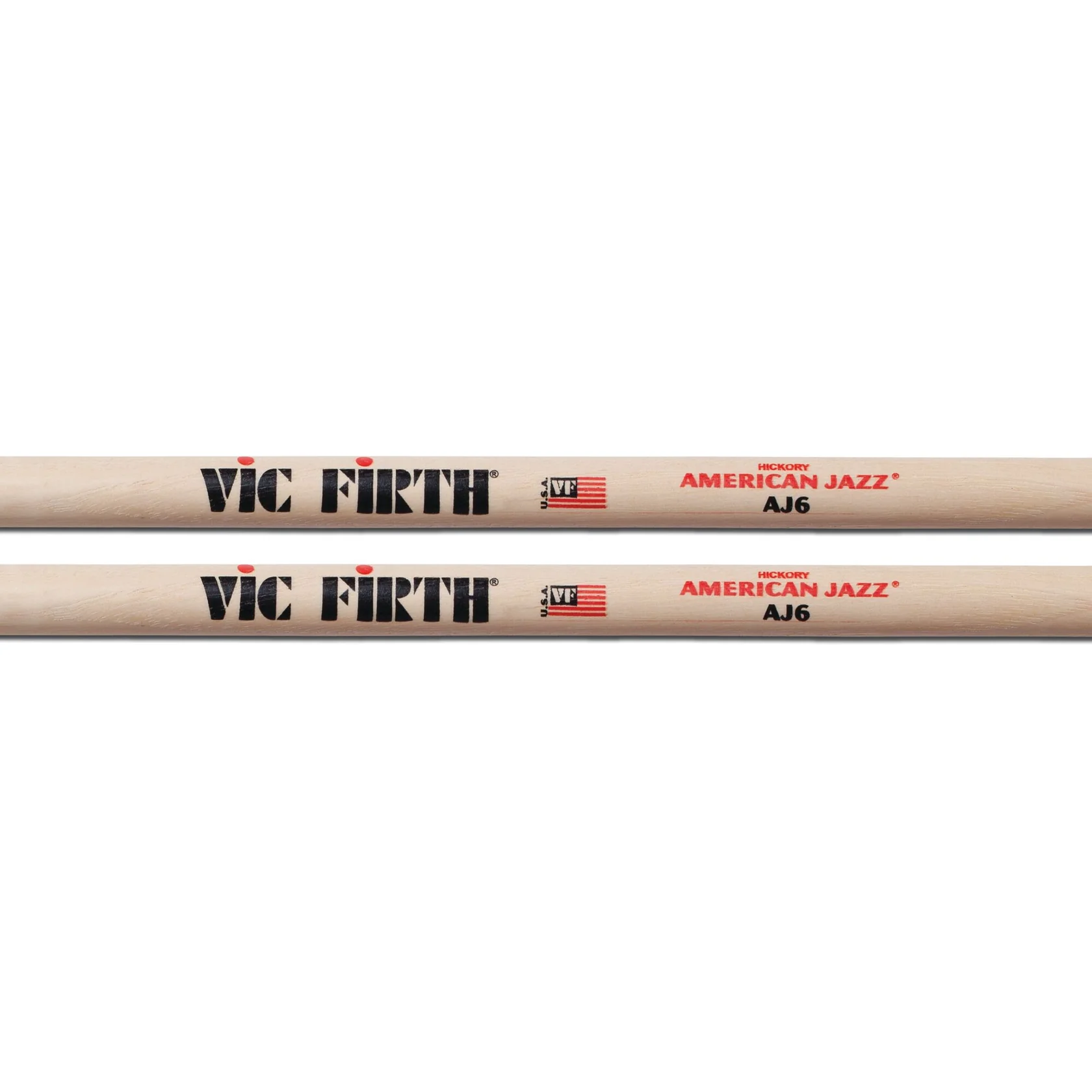
Vic Firth AJ6
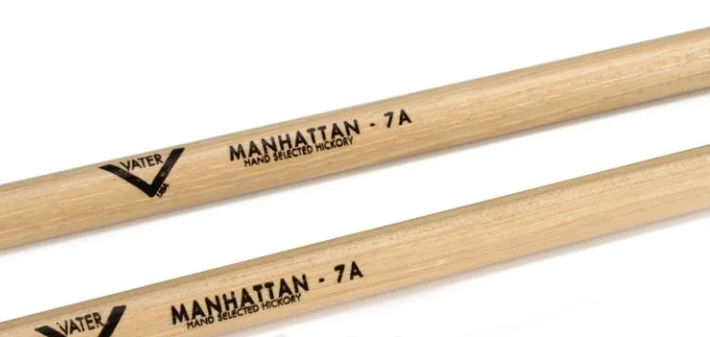
Vater Manhattan 7A
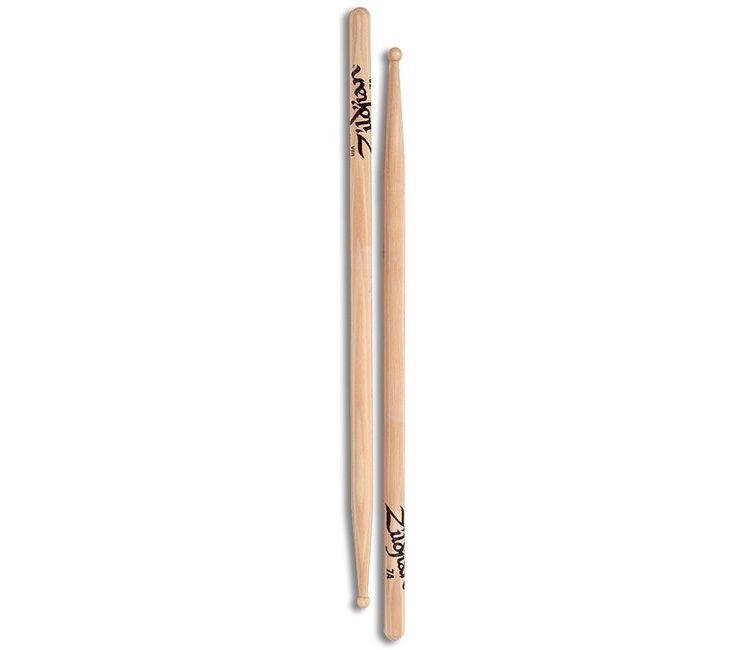
Zildjian Jazz 7A
Best Drumsticks for Electronic Drums
If you’re drumming on an electronic kit, you’re playing on rubber or mesh pads, not acoustic heads which changes everything. Using the wrong sticks can lead to premature wear on your pads, excessive hand fatigue, and even a totally different feel than you’re used to.
I made the mistake early on of using my usual wood-tip sticks on my mesh kit. Over time, I started noticing little dents in the pad mesh and more buzzing in my fingers.
That’s when I found out that some drumsticks are specifically designed for electronic kits – and they make a huge difference.
What to Look for in Electronic Drumsticks:
- Nylon tips to protect mesh and rubber pads
- Anti-vibration features to reduce hand fatigue
- Lighter weight for faster rebound on harder surfaces
- Synthetic or carbon fiber options for extreme durability
Curious whether nylon or wood tips work better for e-drums? We break that down fully in our nylon vs wood tip guide. You can also read the dedicated breakdown on drumsticks for electronic drums here.
Top Drumsticks for Electronic Drums

Zildjian Anti-Vibe Nylon 5A
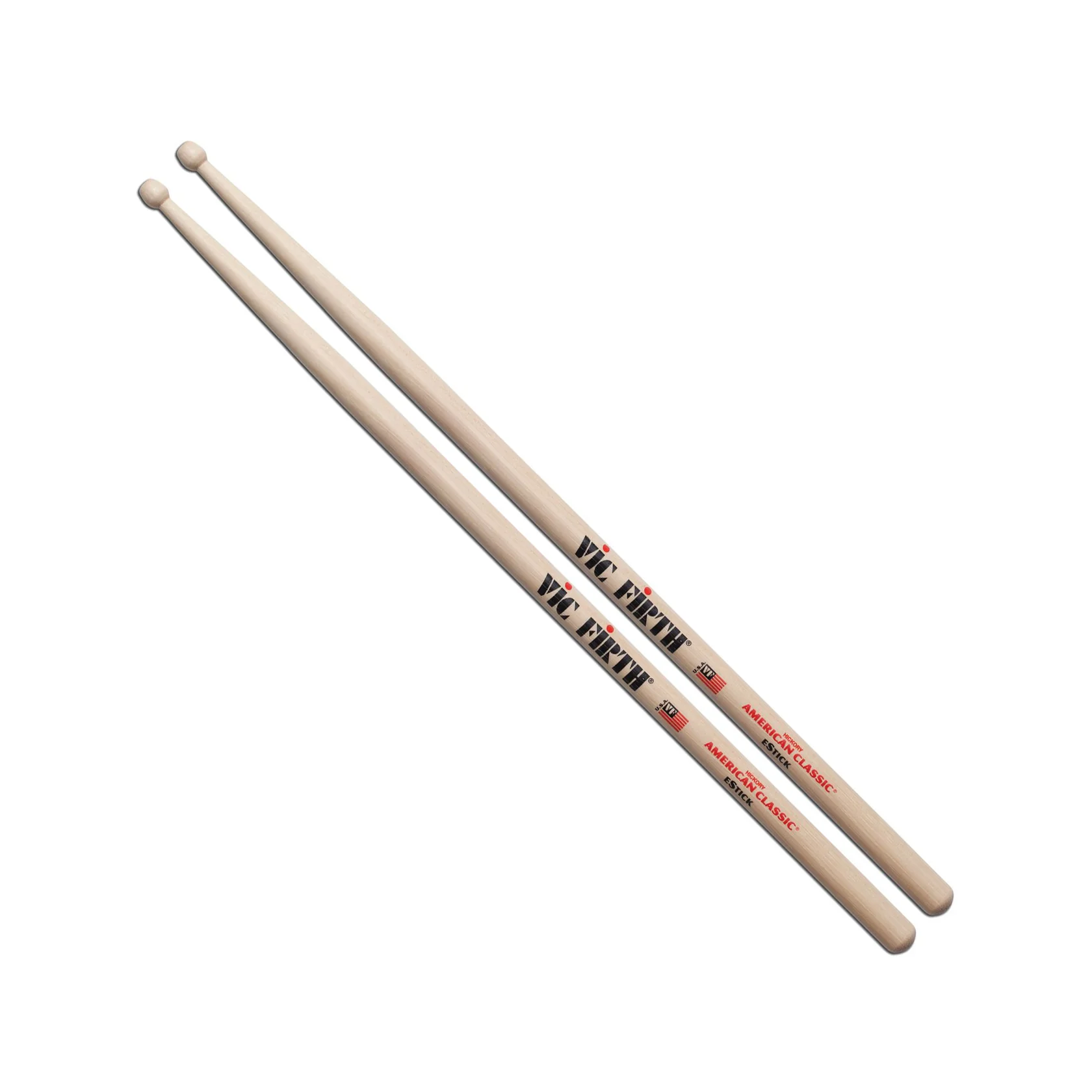
Vic Firth eStick
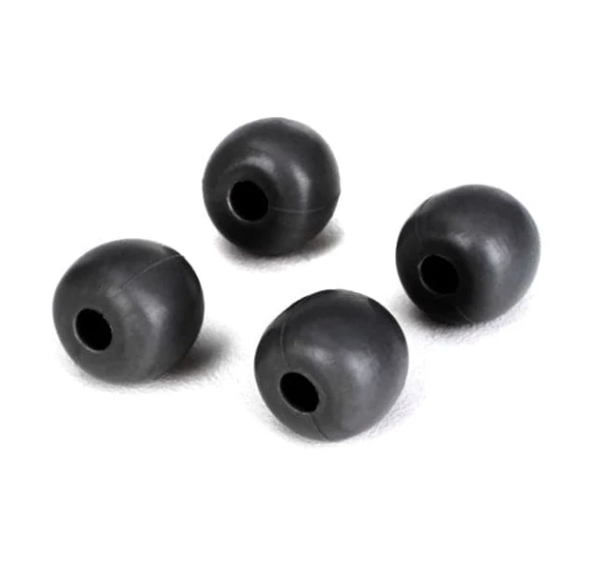
AHEAD Practice Tip Sticks
Best Drumsticks for Quiet Practice
Practicing drums without waking the neighborhood (or your family) is one of the biggest challenges for any drummer.
Whether you’re using a practice pad, low-volume cymbals, or a full electronic kit, the right drumsticks can dramatically reduce noise and improve control during quiet sessions.
I’ve tried everything from rods to rubber tips, and what I’ve found is that quiet practice sticks fall into two main categories: those designed to lower volume, and those designed to help you build strength and precision.
What to Look for in Quiet Practice Sticks:
- Rubber tips or specialty dampeners
- Lighter sticks for reduced attack and volume
- Balanced weight to maintain natural feel
- Durability when used on practice pads
If you’re serious about developing control, check out our full post on practice drumsticks and practicing playing drums without drums.
Top Drumsticks for Quiet Practice

Vic Firth SD1 General
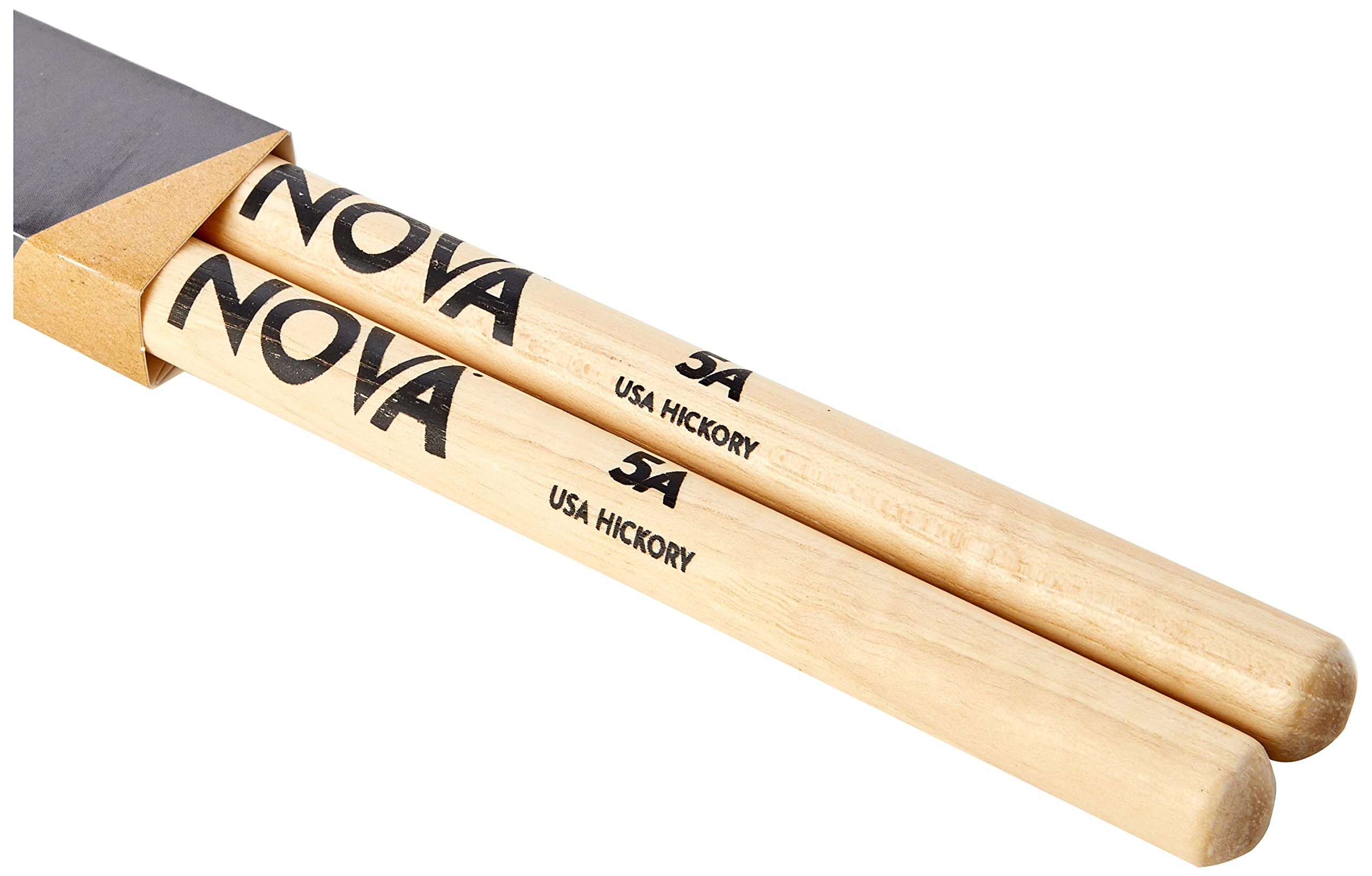
Vic Firth Nova 5A
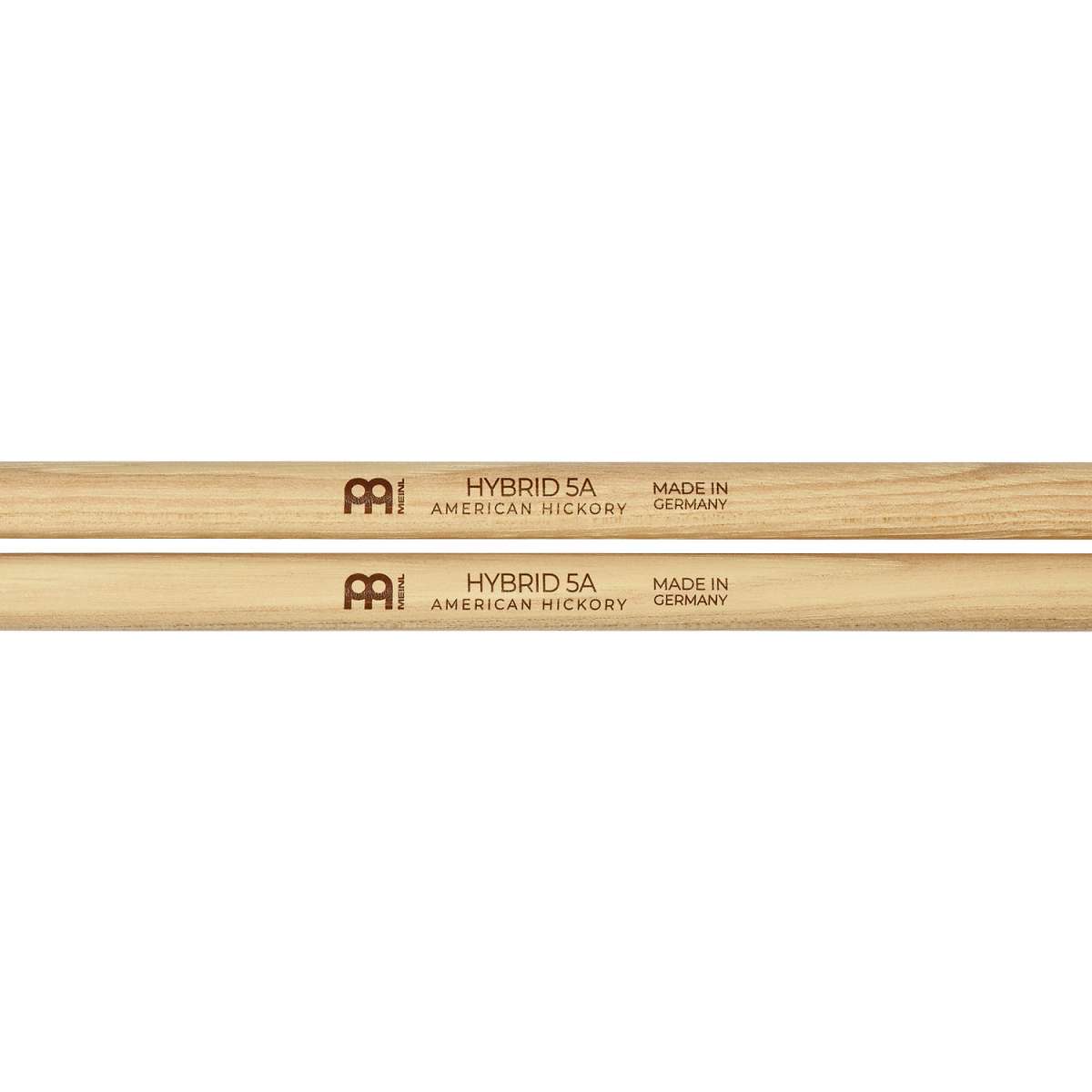
Meinl Hybrid Practice 5A
Best Drumsticks for Beginners
Starting out as a drummer is exciting – but also overwhelming. With dozens of sizes, shapes, materials, and brands to choose from, even something as “simple” as drumsticks can get confusing fast.
That’s why beginner-friendly sticks are designed to be versatile, balanced, and forgiving, sinc they help you build control and develop technique before you dive into specialty options.
When I was teaching drum lessons, one of the biggest mistakes I saw was students starting with sticks that were either way too heavy or too long.
A good 5A hickory stick is often the sweet spot: not too light, not too bulky – just a solid middle ground for building muscle memory.
What to Look for in Beginner Drumsticks:
- Standard sizes like 5A or 7A for versatility
- Wood tips for a natural feel on both drums and cymbals
- Balanced weight to make rebound easier to learn
- Hickory wood for durability without being too stiff
Want to go deeper? We break it all down in our full beginner drumsticks guide and the Drumsticks 101 mega post.
Top Drumsticks for Beginners

Vater Fusion

Vic Firth Nova 5A

Sound Percussion Labs 5A
Quick Summary
How to Choose the Right Drumsticks
If you’re still not sure what sticks to start with, you’re not alone. Choosing drumsticks comes down to a mix of feel, purpose, and personal preference, and honestly, the best way to find your match is to test a few different pairs.
That said, there are a few quick tips that’ll steer you in the right direction:
- Stick sizes like 5A are perfect all-rounders (great for beginners)
- 5B is heavier, often better for rock and metal
- 7A is lighter and popular for jazz or younger players
- Tip shapes, wood types, and taper all affect how your sticks sound and feel
Want the full breakdown? We’ve covered it all in our flagship post: Drumsticks 101 – How to Choose Drumsticks Like a Pro. It dives into everything from tip shapes to material comparisons – worth a read before you buy.
Make Your Drumsticks Last Longer
Let’s face it, breaking sticks is part of the game, especially if you play rock, metal, or practice often. But there are a few habits that can seriously extend your sticks’ life before you end up with a snapped pair mid-song.
Here’s what’s worked for me (and many students I’ve taught):
- Rotate your sticks often – don’t wear one side down more than the other
- Loosen your grip just a bit – too much tension causes chips and shock
- Avoid sharp cymbal edges and rimshots if you’re just practicing
- Store them properly (no tossing in a backpack or drum bag loose)
If you want the full guide on how to stop snapping sticks constantly, check out Broken Drumsticks: How to Prevent & Deal With Damage.
You can also learn how long a good stick should last in our article How Long Should Drumsticks Last? Here’s What’s Normal
Bonus Picks: Specialty Drumsticks Worth Trying
Once you’ve got your main go-to pair, it’s worth exploring a few specialty options to round out your stick collection.
These aren’t for everyone, but they can seriously level up your practice sessions, reduce fatigue, or give you a whole new sound to experiment with.
Here are a few cool options I’ve tested (and keep in my stick bag):
Carbon Fiber Drumsticks
These are nearly indestructible and great for drummers who shred through wood sticks. They’re lighter than you’d expect, and perfect for touring, outdoor gigs, or just avoiding mid-set breaks.
Techra has industry-leading drumsticks made carbon fiber, you can check them out in their website.
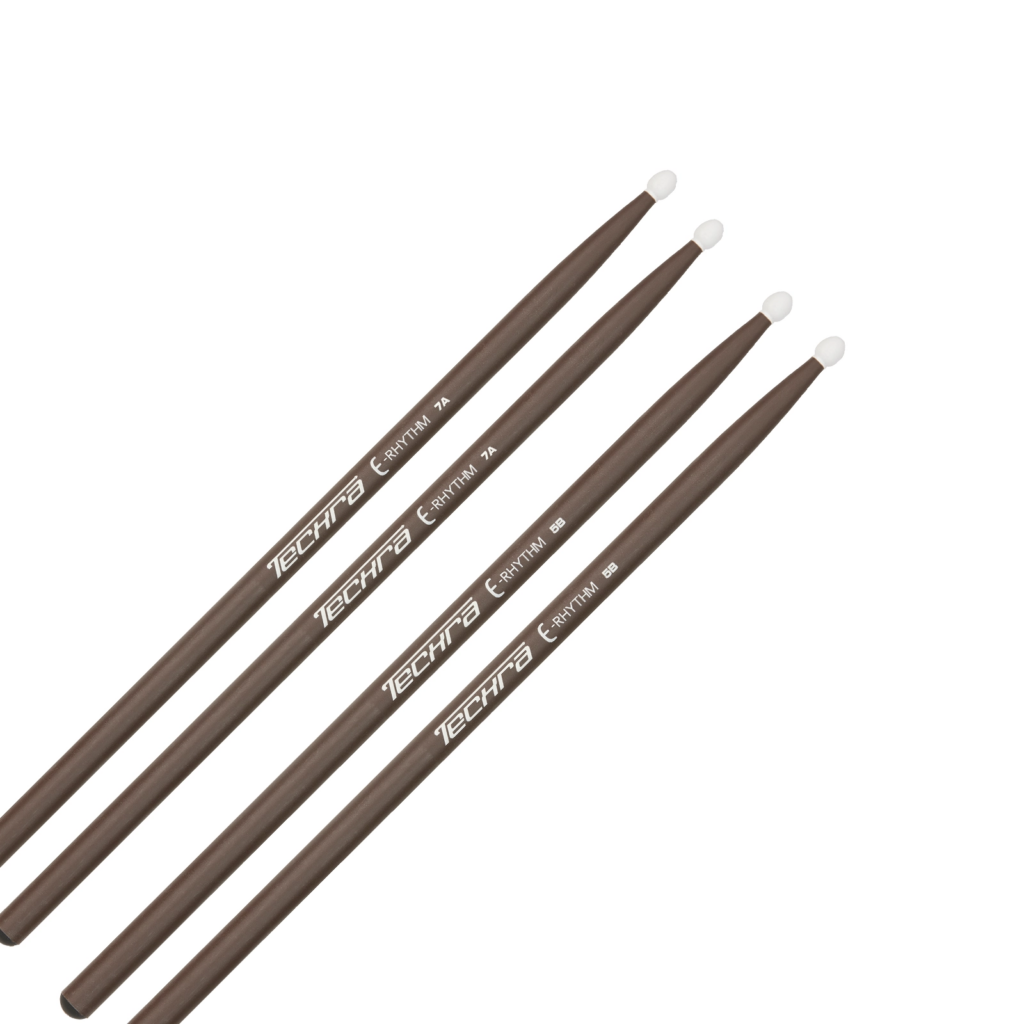
Check out our full review of carbon sticks here.
Signature Artist Sticks
Many pros work with brands like Vic Firth, Promark, and Vater to develop sticks that match their playing style.
If you find a drummer you love (e.g. Dave Weckl, Mike Mangini, Anika Nilles), try their signature stick – it can teach you a lot about balance, taper, and tone.

Quiet Practice Sticks & Rods
Need something even softer than 7As? Rods, anti-vibe sticks, and rubber-tipped practice models can be a lifesaver if you play in apartments, church settings, or at night.
We’ve rounded up a bunch of them in our practice sticks guide.
These aren’t essential, but if you’re looking to expand your options, these are definitely worth having in your arsenal.
Final Thoughts: What Are the Best Drumsticks Overall?
At the end of the day, the best drumsticks aren’t about brand hype or price tags – they’re about what feels right in your hands, matches your playing style, and holds up to your practice routine.
If you’re just starting out? Try a pair of 5A hickory sticks like the Vic Firth American Classic series. They’re the gold standard for a reason: balanced, durable, and versatile across genres.
If you’re gigging hard, practicing late at night, or exploring jazz phrasing, your needs will change. And that’s the beauty of it – sticks aren’t one-size-fits-all, and the more you experiment, the more you learn about your own playing.

